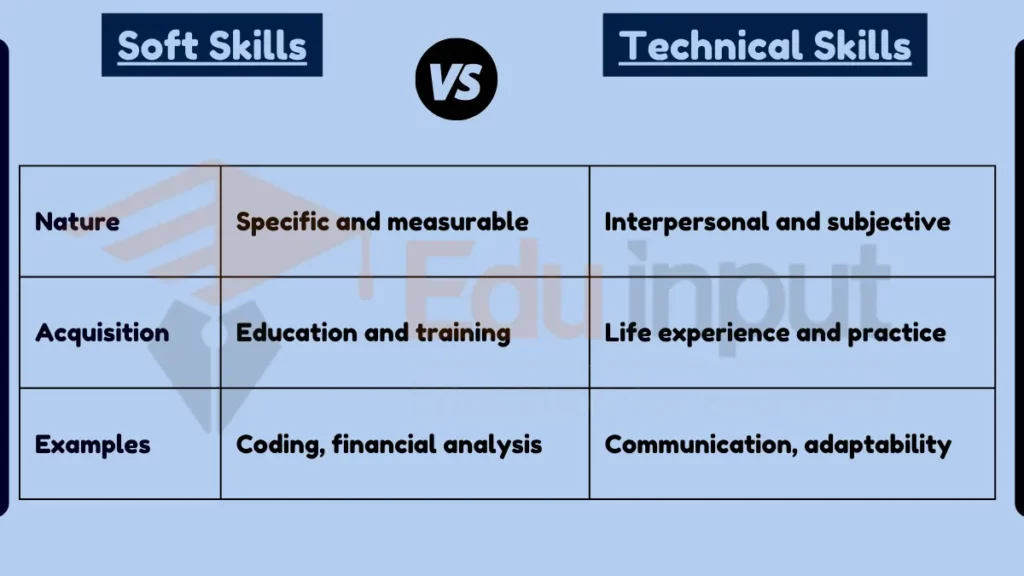Difference Between Soft Skills and Technical Skills
Key Difference
Soft skills and technical skills are two categories of skills essential for professional success, but they differ significantly in nature and application. Technical skills, also known as hard skills, are specific, teachable abilities or knowledge sets that can be defined and measured, such as programming, accounting, or machinery operation. They are often job-specific and acquired through education, training, or experience in a particular field. Soft skills, on the other hand, are interpersonal or people skills that are harder to quantify. They include abilities like communication, leadership, problem-solving, and teamwork. These skills are crucial for navigating the workplace, collaborating with others, and achieving long-term career success.

Comparative Analysis
- Nature and Definition:
- Technical Skills: Specific, measurable, and often related to a particular task or area of knowledge.
- Soft Skills: Relational, subjective, and broadly applicable across different professions.
- Acquisition:
- Technical Skills: Learned through education, training programs, and specific work experience.
- Soft Skills: Developed through life experiences, interactions, and continuous practice.
- Examples:
- Technical Skills: Coding, financial analysis, foreign language proficiency.
- Soft Skills: Communication, adaptability, emotional intelligence.
- Evaluation:
- Technical Skills: Often assessed through tests, certifications, or demonstrable proficiency.
- Soft Skills: Typically gauged through observations, interactions, and subjective evaluations.
- Role in Career Development:
- Technical Skills: Often crucial for initial employment and specific job functions.
- Soft Skills: Key for career growth, leadership roles, and effective teamwork.
Table Summary
| Feature | Technical Skills | Soft Skills |
|---|---|---|
| Nature | Specific and measurable | Interpersonal and subjective |
| Acquisition | Education and training | Life experience and practice |
| Examples | Coding, financial analysis | Communication, adaptability |
| Evaluation | Tests and certifications | Observations and interactions |
| Career Role | Job-specific functions | Long-term growth and teamwork |
Both soft skills and technical skills are essential in the workforce, but they serve different purposes. Technical skills are necessary for performing specific job tasks, while soft skills are crucial for effective communication, teamwork, and leadership. A well-rounded professional typically benefits from a combination of both skill sets.



Leave a Reply